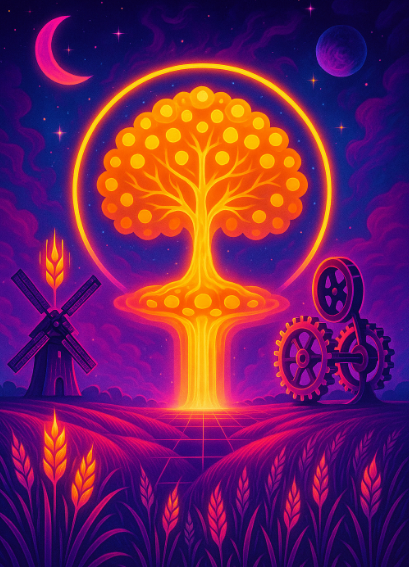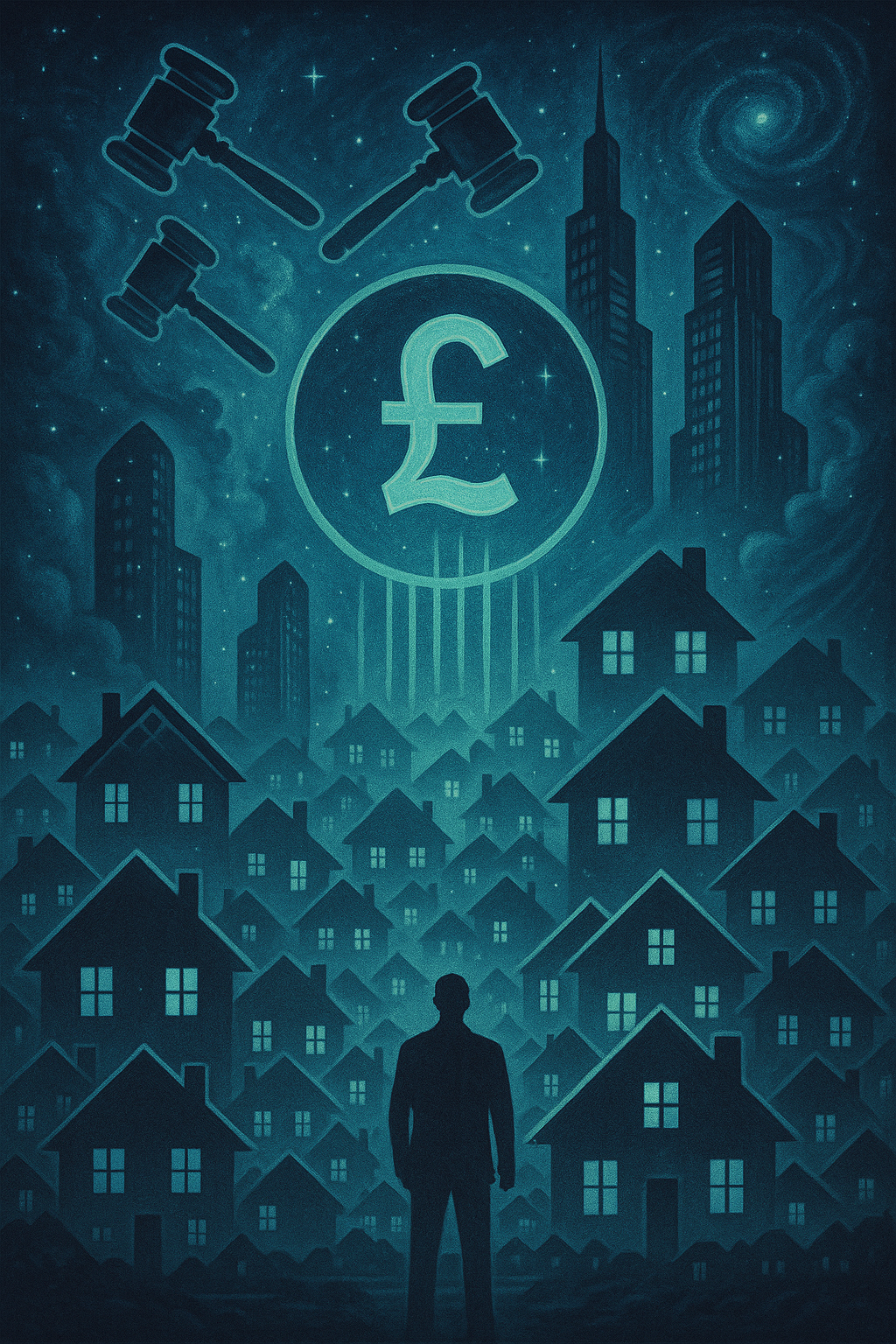Popular articles
Imagine starting your day already on edge. Your phone pings with a rent reminder, an overdue utility bill, and a work email demanding a response by noon. You haven’t even brushed your teeth, but your mind is racing—ticking off tasks you can’t ignore: pay this, file that, call them, don’t forget. The clock ticks louder than your heartbeat, and somewhere beneath the chaos, a quiet voice whispers about that course you meant to take, that job you wanted to apply for. But there’s no time. There’s never time. This is modern life: a relentless churn of demands that fuels worry and anxiety, chaining you to survival while opportunities slip further out of reach.
The Psychology of Worry: A Mind Under Siege
Worry and anxiety are the brain’s alarm systems, evolved to keep us safe. A looming threat—say, a predator or a storm—once triggered a sharp, fleeting spike of alertness: heart racing, senses sharp, ready to act. Today, though, the threats aren’t so simple or short-lived. They’re bills stacking up, rent deadlines, endless admin forms, and work that spills into every corner of your life. These aren’t dangers you can outrun; they’re a constant hum, a background noise that never shuts off.
Psychologically, this shift is brutal. Acute stress—brief and resolvable—gives way to chronic stress, where the brain marinates in cortisol, the stress hormone. Over time, this wears down mental clarity, leaving you stuck in a loop of “what ifs” and “I can’ts.” Worry becomes a reflex, anxiety a roommate. And amidst this, society piles on more: more tasks, more hours, more to prove you’re keeping up.
The Rising Tide of Societal Demands
Surviving today feels like a second job—one that pays in exhaustion. The admin alone is staggering: rent payments, utility bills, insurance renewals, tax forms, subscription cancellations you keep postponing. Every task demands time, focus, and often a wrestle with some convoluted system—think hours on hold or digging through fine print. It’s not just the doing; it’s the mental toll of tracking it all. Studies suggest the average adult now juggles dozens of these micro-tasks monthly, a load that’s ballooned over decades as bureaucracy grows thornier.
Then there’s work. Hours stretch longer—40 hours feels quaint when emails ping at midnight. Many juggle multiple jobs or gig work, patching together income with no safety net. Bills climb faster than paychecks, and rent or mortgage payments loom like monthly ultimatums. These aren’t optional; they’re the bare minimum to keep the lights on, the roof overhead. But the cost is steep: every minute spent here is a minute stolen from something else.
The Opportunity Cost: Dreams Deferred
Here’s where the trap tightens. All this surviving eats into the time and energy you’d use to get ahead. Want a better job? You need to scour listings, tweak resumes, prep for interviews—tasks that demand focus you don’t have after a 10-hour shift and an evening of bill-wrangling. Upskilling? That coding bootcamp or certification sounds great, but it’s hard to study when you’re bone-tired and worried about next month’s rent. Even basic job searching becomes a luxury when your head’s barely above water.
It’s a vicious cycle: the more these demands consume you, the less you can do to escape them. The less you escape, the more anxious you get about being stuck. And the more anxious you are, the harder it is to muster the will to try. Opportunities—to learn, to grow, to breathe—slip away, not because you don’t want them, but because you can’t reach them. It’s like running on a treadmill set to “uphill forever”: you’re moving, but you’re not getting anywhere.
The Vicious Cycle in Action
Picture this: You’re late on a bill because work ran overtime. Paying it means skipping dinner to navigate a glitchy website, spiking your stress. That stress keeps you up, so you’re foggy at work the next day, missing a chance to shine—or to sneak a moment to browse job boards. Exhausted, you skip that online course again, and the worry creeps in: I’ll never get out of this. Anxiety digs its claws deeper, sapping the energy you’d need to break free. Rinse, repeat.
Data backs this up. Surveys show over 60% of adults feel overwhelmed by admin alone, while financial stress is a top driver of anxiety and depression. The mental bandwidth these demands devour leaves little for proactive steps—steps society tells you are your ticket out, if only you’d “work harder.”
The Breaking Point: Anxiety’s Lasting Echoes
This cycle doesn’t just tire you; it breaks you. Chronic anxiety can spiral into burnout—emotional exhaustion, detachment, a sense you’re failing at everything. Depression often tags along, whispering that this is all there is. Seeking help feels right, but therapy costs money and time—more resources you’re already short on. The irony stings: the system that fuels your worry also blocks the exits.
A Glimmer of Hope: Small Steps Forward
Breaking this cycle isn’t easy—it’s not meant to be. The deck’s stacked against you, and that’s not your fault. But there are cracks to widen. Start small: 15 minutes of quiet, a walk, a moment to breathe. Automate a bill if you can; say no to an extra shift once in a while. Ask for help—friends, family, a counselor if it’s an option. These won’t dismantle the machine, but they might loosen its grip, giving you a sliver of space to dream again.
The Bigger Picture: Worry as a Wake-Up Call
Worry and anxiety aren’t just burdens—they’re signals, screaming that something’s wrong. Not with you, but with a world that demands everything and gives back so little. The admin, the hours, the bills—they’re not personal failings; they’re societal ones. To quiet the alarm, we need more than grit; we need a system that doesn’t thrive on our exhaustion. Until then, every step you take—however small—is a defiance of the cycle, a claim on the life you deserve.
Subscribe to unlock premium content
Sed at tellus, pharetra lacus, aenean risus non nisl ultricies commodo diam aliquet arcu enim eu leo porttitor habitasse adipiscing porttitor varius ultricies facilisis viverra lacus neque.
The Great Wealth Generation Act 1.0

The Great Democracy Restoration Act

UK Nutrition Act 1.0

The Great Wealth Generation Act 1.0

The Great Democracy Restoration Act

The Great Wealth Generation Act 1.0







